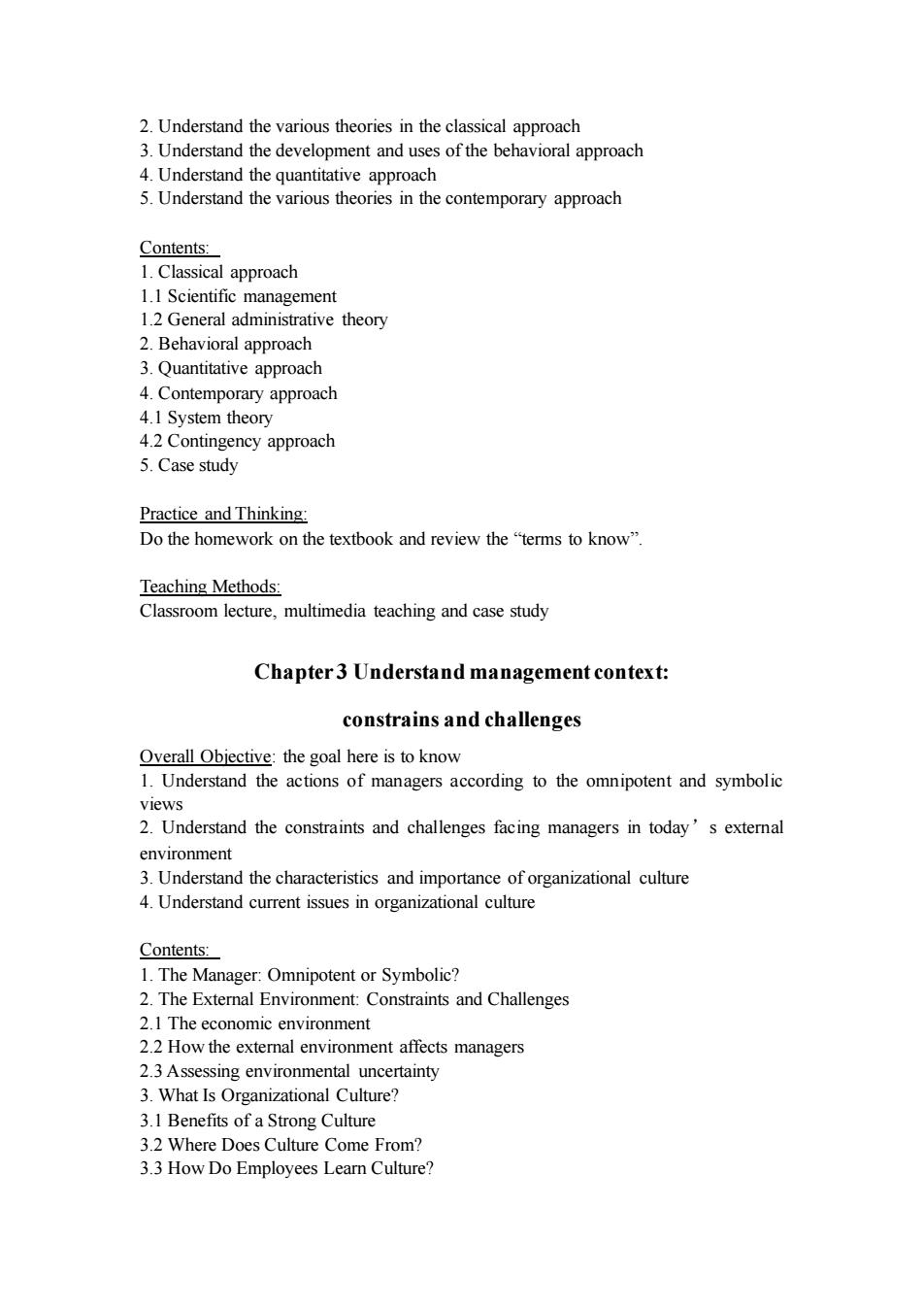正在加载图片...

3.Understand the development and us s of the behavioral approach 4.Understand the quantitative approach 5.Understand the various theories in the contemporary approach Contents 1.Classical pproach 1.1 Scientific management 1.2 General administrative theory 2 Behavioral approach 3.Ouantitative approach rary approach 4.1 System theory 4.2 Contingency approach 5.Case study Practice and Thinking Do the homework on the textbook and review the"terms to know" Teaching Methods: Classroom lecture,multimedia teaching and case study Chapter 3 Understand management context: constrains and challenges Overall Objective:the goal here is to know 1.Understand the actions of managers according to the omnipotent and symbolic environment 3.Understand the characteristics and importance of organizational culture 4.Understand current issues in organizational culture Contents: I.The Manager:Omnipotent or Symbolic? 2.The External Environment:Constraints and Challenges 2.1 The economic environment 2.2 How the exten nal envir ent affects managers environment uncertainty 3.What Is Organizational Culture? 3.1 Benefits of a Strong Culture 3.2 Where Does Culture Come From? 3.3 How Do Employees Leam Culture?2. Understand the various theories in the classical approach 3. Understand the development and uses of the behavioral approach 4. Understand the quantitative approach 5. Understand the various theories in the contemporary approach Contents: 1. Classical approach 1.1 Scientific management 1.2 General administrative theory 2. Behavioral approach 3. Quantitative approach 4. Contemporary approach 4.1 System theory 4.2 Contingency approach 5. Case study Practice and Thinking: Do the homework on the textbook and review the “terms to know”. Teaching Methods: Classroom lecture, multimedia teaching and case study Chapter 3 Understand management context: constrains and challenges Overall Objective: the goal here is to know 1. Understand the actions of managers according to the omnipotent and symbolic views 2. Understand the constraints and challenges facing managers in today’s external environment 3. Understand the characteristics and importance of organizational culture 4. Understand current issues in organizational culture Contents: 1. The Manager: Omnipotent or Symbolic? 2. The External Environment: Constraints and Challenges 2.1 The economic environment 2.2 How the external environment affects managers 2.3 Assessing environmental uncertainty 3. What Is Organizational Culture? 3.1 Benefits of a Strong Culture 3.2 Where Does Culture Come From? 3.3 How Do Employees Learn Culture?